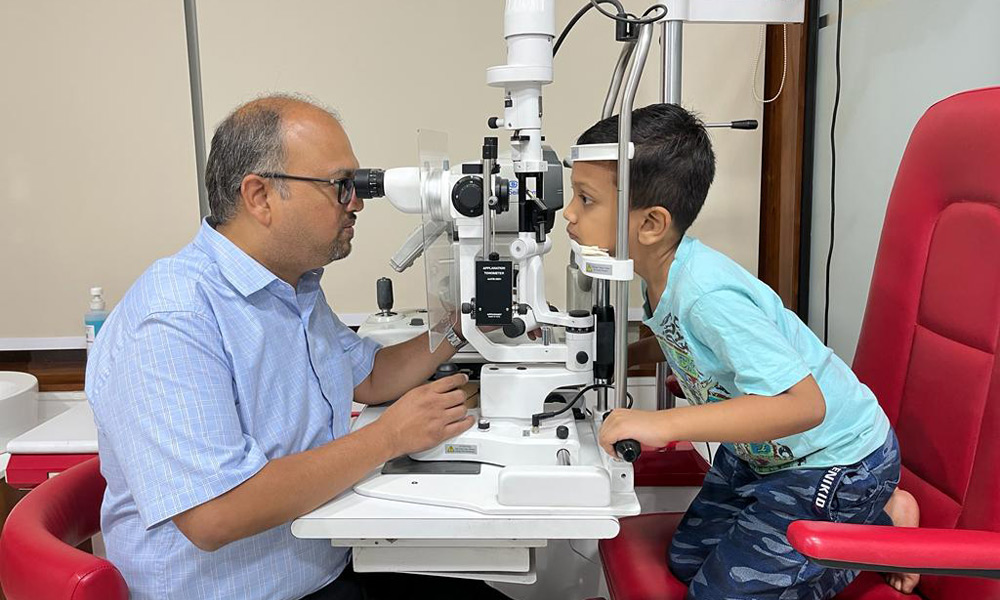-
Call Us
+91 91759 73201 -
Email Us
drchetanjaykar@gmail.com -
Time
Mon To Sat (Sun Close)
10:00 AM - 02:00 PM 05:00 PM - 08:30 PM

Paediatric eye care involves the diagnosis and treatment of eye related & vision related problems in children. It is important for children to have regular eye exams to ensure that their vision is developing properly and to detect any potential problems early on. The American academy of ophthalmology recommends that children have their first eye exam at 6 months of age, followed by another exam at age 3 and again at age 5 or 6, before entering school. After that, children should have regular eye exams every 1-2 years, or as recommended by their eye doctor.
Common vision problems in children include near sightedness, far sightedness, astigmatism, and amblyopia (lazy eye). These conditions can often be treated with glasses, contact lenses, or vision therapy. In some cases, surgery may be necessary.
It is important for parents to pay attention to signs of vision problems in their children, such as squinting, rubbing their eyes frequently, or holding objects very close to their face. Children may also have difficulty with reading, writing, or other school-related activities.
In addition to regular eye exams, parents can help promote good eye health in their children by encouraging outdoor play, limiting screen time, and providing a healthy diet rich in nutrients that are important for eye health, such as vitamin A and omega-3 fatty acids.
Overall, paediatric eye care is an important aspect of a child's overall health and well-being. By detecting and treating vision problems early, parents can help ensure that their children have the best possible vision and a bright future ahead.
Copyright @ Jaykar Eye Clinic 2023. All rights reserved